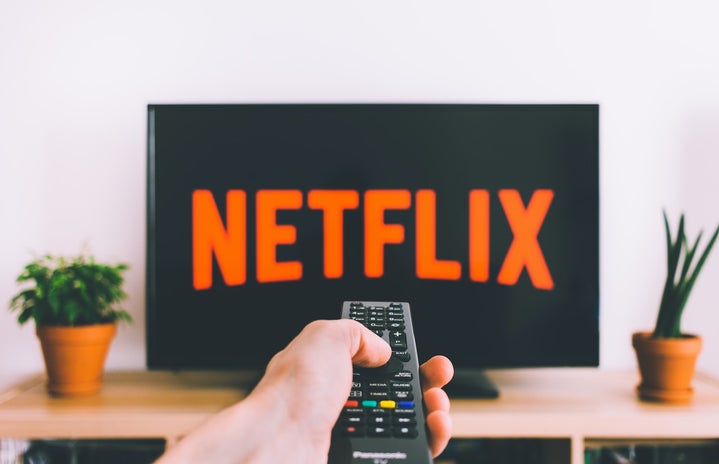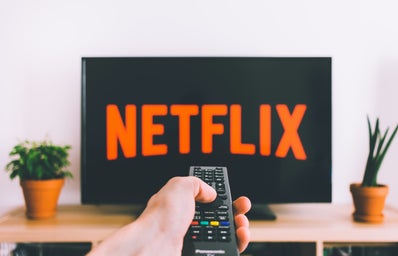After years of censorship and harmful portrayals of LGBTQ+ people in film and television, mainstream modern media have embraced queer identities. This is evident through the portrayal of fleshed-out characters who fall outside the heteronormative, cis-gendered norms of our society. There are many movies that depict gay love stories and show what it is like to navigate the world as a queer-identifying person, providing positive representation for the LGBT community. However, even in 2022, where queer representation in mainstream media is higher than it has ever been, representation for certain marginalized identities, such as non-binary identifying people, asexuals, aromantics, and transgender people, among others, remains limited.
It is important to continue representing marginalized communities, as it’s beneficial for society at large. Both in terms of teaching audiences about experiences they might not yet understand, as well as making those who identify differently from the majority feel less alone and validated.
Why is positive media representation important?
Representation in the media refers to how parts of society are represented to audiences. It is important as what is presented in film and television is supposed to reflect what our society looks like. It also shapes how people view others who may be different to themselves, affecting how marginalized communities are treated. In addition, it influences how people see themselves, and whether they feel included in the society they reside in. This can be applicable to genders, sexualities, ethnicities, ages, or other parts of society, but this article will look specifically at LGBT representation.
A lack of representation, in general, can be very damaging to marginalized identities. Since this erases them from the media space, a place for them in society isn’t considered, as they have been disconnected and forgotten. Misrepresentation is also very damaging, as it spreads misinformation and can cause people to question the validity of their identity, bringing about feelings of self-hatred.
Positive media representation is important as it can help to break down any negative stereotypes that are damaging or harmful to minority groups. LGBT media representation affects how others understand different identities and are also beneficial in the normalization of non-heteronormative or non-cis-gendered identities. In addition, representation also affects how LGBT viewers see themselves. It can make them feel validated, secure in their identity, and included in society.
I’d like to explore the importance of LGBTQ+ representation by looking at the benefits that positive representation has had in marginalized communities thus far. Since I can’t cover all of them, I will be looking at the non-binary representation in Sex Education‘s third season, as well as the asexual representation from BoJack Horseman. (Spoiler warnings will be included).
Todd Chavez from BoJack Horseman
(Contains spoilers from seasons 4 – 6 of BoJack Horseman)
Asexuality is an umbrella term that describes those who experience limited or no sexual attraction and has a variety of sub-identities such as demi-sexual, grey-sexual and more. Approximately 1% of people identify with being on the asexual spectrum. However, very little representation of this sexuality exists, and most of what does exist depict asexuality as an illness that needs to be treated, or a phase to grow out of. Being an asexual, or ‘ace’, the person who loves watching movies and series, I’m painfully aware of how little positive asexual representation there is. So when I heard that BoJack Horseman had included an asexual character AND a fully fleshed-out asexual story arc, I immediately binge-watched the entire show, and I wasn’t disappointed.
If you ask any asexual out there about asexual representation, they will probably point you in the direction of Todd Chavez, as he is, thus far, the only confirmed case of asexual representation in media that doesn’t make us feel invalidated (yay!). Todd is one of the main characters of the show who is revealed in earlier seasons to be struggling with his sexual identity and finding a place where he feels like he fits, even within the LGBT community. There is a moment in the third season where he is questioned about his identity, and he says, “I think I might be nothing.” I think that these thoughts of feeling abnormal in society are universal not only for aces but for queer folk in general In the fourth season, he utters the words “I am asexual,” – and begins navigating the world with an identity that he finally feels comfortable in.
From this moment up until the end of the show, a lot of screentime is dedicated to Todd’s comedic and mostly light-hearted ‘ace adventures’ where he figures out what his asexual identity means for him. After attending some asexual gatherings, he learns that some aces still want to pursue romantic relationships. Todd decides he wants to start dating as well and faces some challenges along the way. His first relationship is with Emily, an allosexual (non-asexual) partner, who ends the relationship because their sexual wants weren’t compatible with each other. This is followed by his first romantic relationship with a fellow asexual, Yolanda, which ends as their personalities are very different. At the end of the day, the only thing they had in common was their sexual orientation. After these experiences, Todd feels doomed to be completely alone. This is an incredibly relatable experience for aces, as relationships will often fall apart. It is easy to think that it’s your fault, or that you’re the problem because of your sexual orientation. And because meeting other asexuals can seem so few-and-far-between, it’s easy to feel alone in your experiences.
What I really love about the show is that they gave Todd’s love-life a happy ending, as he enters a romantic relationship with an asexual named Maude. Their personalities get along like a house on fire. I think this was an important storyline to be written into the show because it demonstrates that dating as an asexual isn’t a total lost cause (if you’re an asexual who is interested in dating, of course). Overall, I found Todd’s journey emotional and hilarious. His story does a good job of outlining what asexuality is, and what an asexual relationship can look like.
Cal Bowman from Sex Education
(Contains spoilers for season 3 of Sex Education)
The term ‘non-binary’, also known as NB or Enby, is an umbrella term for people who don’t conform to society’s binary gendering of male and female. The term can encompass many identities, such as agender, bigender, genderqueer, gender-fluid and many others. An estimated 2% of the world’s population identifies as non-binary. Yet the positive representation of this identity in film and television is still lacking. Where there is representation, it is usually not explicitly stated, or the NB characters play minor roles where their identity is reduced to stereotypes. (While I don’t personally identify as non-binary, I learnt a lot about gender identity through this show and have heard a lot of praise both from my Enby friends and from online reviews, which is why I have included it.)
Given the usual lack of NB representation, Cal’s character from Sex Education was an incredibly valuable addition to the third season. Sam Moore says,
“Non-binary representation on TV still feels like a rarity, and this season of Sex Education feels like one of the only times a character has said ‘my pronouns are they/them’ and it’s felt like the most normal thing in the world.”
The show has been praised for giving an accurate representation of queer life, and Cal Bowman’s storyline is no different. In the third season of the show, Moordale High goes through many changes, including gendered uniforms and gender-divided sex-ed classes. These are challenging to Cal’s identity and gender expression, portraying what it’s like navigating a strictly binary world as a non-binary individual. I think this is a feeling all NB people can relate to, especially when navigating the school system.
Cal’s relationship with Jackson also reveals a lot about the NB experience, specifically with regards to the topic of having to explain their gender identity and expression to their cis-gendered friends and family members. Those who identify outside of the cis-gendered bracket are often expected to be fully knowledgeable about their experience and the experiences of others. Sex Education challenges this notion when Cal says, “There’s so much shit I don’t know myself, I can’t carry you too.”
Another thing that I thought was worth mentioning was how the season effortlessly weaves in a lesson about chest binding through an exchange between Cal and Layla, another NB student. The scene delicately shows how to chest bind safely and explains the dangers of unsafe chest binding. I thought it was an incredibly important addition to the show, as I previously didn’t know much about the topic. If you’d like to know more about safe chest-binding from medical professionals, here is a link.
Despite the challenges thrown their way, Cal remains confident and secure in their identity and never feels shame for it, making them amazing role models to other Enbys who watch the show. Not only is the representation of Cal’s experiences useful to the show’s cis-gendered audience for understanding what it means to be non-binary, but it is also relatable for the show’s Enby audience. It may also be helpful for those who are struggling with their gender identity. Isabel Corp writes,
“I wish I would have seen a character like Cal on television as a kid. If I had, I would have been able to better understand my own skewed relationship with my gender identity growing up.”
The writers of Sex Education emphasize in the series that while Cal is a non-binary character, they don’t know everything about what it means to be non-binary. This displays that there is not just one way to be non-binary, as it is a fluid identity that encompasses many diverse experiences. The same idea can be applied to BoJack Horseman’s portrayal of asexuality. There are many different experiences of asexuality that weren’t presented through Todd’s storyline, such as the experiences of aromantic asexuals (aces who don’t wish to have romantic relationships) or sex-positive asexuals (aces who feel comfortable pursuing a sexual relationship). This is the same for most, if not all, identities in the LGBT community. These representations are monumental in mainstream media. They are helpful in paving the way for future representations of asexual and non-binary identities, as well as other marginalized identities that have yet to get positive representation.


